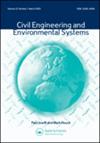在可持续发展的背景下,基于木材的现代建筑方法
IF 1.1
3区 工程技术
Q3 ENGINEERING, CIVIL
引用次数: 8
摘要
建筑的全球发展使可持续性在社会和整个环境的整体健康运作中发挥着至关重要的作用。现代施工方法(MMC)代表了对可持续发展趋势的回应,因为它们带来了更快的施工速度和更好的环境、能源和经济参数。本文的目的是分析和评估MMC以预制板木结构(PWC)的形式的效益。通过案例研究,对普华永道与传统砖石砌筑的某些环境经济参数进行了研究和比较。采用LCA方法中的“从摇篮到闸门”模型对建筑材料成分进行了环境评价。所讨论的参数将根据隐含能量、全球变暖潜势和酸化潜势进行研究。要分析的经济参数包括施工时间、施工成本,特别是将材料运输到建筑工地所造成的环境负担。提交的实验研究及其结果应有助于打破传统技术所造成的障碍,并指出在建筑过程中采用更健康和更无害环境的替代办法。本文章由计算机程序翻译,如有差异,请以英文原文为准。
Modern method of construction based on wood in the context of sustainability
ABSTRACT Global developments in construction give sustainability a crucial role in overall healthy functioning of society as well as the whole environment. Modern Methods of Construction (MMC) represent a response to the sustainability trend, since they bring faster construction and better environmental, energy and economic parameters. The aim of this article is to analyse and evaluate the benefits of MMC in the form of Prefabricated Panel Wood Construction (PWC). With the aid of a case study, certain environmental and economic parameters of PWC on the one hand and traditional Masonry Construction (MC) from ceramic bricks on the other hand will be studied and compared. The environmental evaluation of building material composition was conducted by means of the ‘Cradle to Gate’ model within the LCA method. The parameters in question will be studied in terms of embodied energy, global warming potential and acidification potential. The economic parameters to be analysed include construction time, construction costs and particularly the environmental burden caused by transport of materials to the building site. The submitted experimental study and its results should help break barriers sustained by traditional technologies and point towards healthier and more environmentally friendly alternatives in construction processes.
求助全文
通过发布文献求助,成功后即可免费获取论文全文。
去求助
来源期刊

Civil Engineering and Environmental Systems
工程技术-工程:土木
CiteScore
3.30
自引率
16.70%
发文量
10
审稿时长
>12 weeks
期刊介绍:
Civil Engineering and Environmental Systems is devoted to the advancement of systems thinking and systems techniques throughout systems engineering, environmental engineering decision-making, and engineering management. We do this by publishing the practical applications and developments of "hard" and "soft" systems techniques and thinking.
Submissions that allow for better analysis of civil engineering and environmental systems might look at:
-Civil Engineering optimization
-Risk assessment in engineering
-Civil engineering decision analysis
-System identification in engineering
-Civil engineering numerical simulation
-Uncertainty modelling in engineering
-Qualitative modelling of complex engineering systems
 求助内容:
求助内容: 应助结果提醒方式:
应助结果提醒方式:


